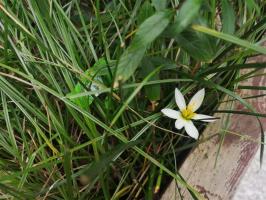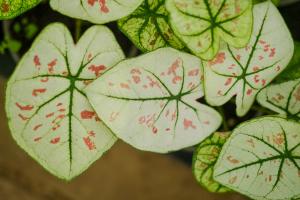Is a Citronella Plant a Perennial?
Citronella is a popular plant known for its citrusy scent that is commonly used to repel mosquitoes and other insects. Many gardeners wonder if this plant is a perennial - meaning it will return year after year. In this article, we will answer that exact question.
What is a Citronella Plant?
Citronella is a tropical plant that is native to Asia. It belongs to the family of grasses and possesses a strong lemon-like fragrance that is highly effective in repelling mosquitoes and other flying insects. The citronella plant is a favorite among gardeners because of its ability to maintain a beautiful and fragrant lawn.
Is Citronella a Perennial?
Yes, a citronella plant is a perennial. However, when it comes to cold climates, it is treated as an annual plant because it cannot withstand winter temperatures. In colder regions, it is essential to dig up the citronella plant before winter and store it indoors until spring. When the temperatures start to warm up, the plant can be resuscitated and planted outside.
Growing Citronella Plant
Citronella plants are relatively easy to grow and can be planted outdoors in the garden or in pots on your patio or balcony. Growing the plant from seeds is not recommended, as the citronella plant has a long germination period. Instead, it is best to purchase an established plant from a reputable nursery. Make sure to plant the citronella plant in well-drained soil and in a location where it will receive ample sunlight.
Caring for Citronella Plant
To ensure that your citronella plant remains healthy and productive, proper care should be taken. Citronella plants require a consistent supply of water, but at the same time, they cannot withstand wet feet. Make sure to water the plant only when the soil feels dry to touch. Also, the plant needs to be fertilized at least twice every year, preferably in the spring and summer.
Harvesting Citronella Plant
The leaves of a citronella plant are the most effective in repelling insects. You can harvest the leaves even before the plant starts to bloom. The leaves should be crushed and rubbed onto the skin to extract the essential oils. The citronella plant can also be harvested for culinary purposes, and the leaves can be used to make tea or to flavor dishes.
Conclusion
In conclusion, a citronella plant is a perennial that requires extra care in colder regions to protect it from the harsh winter temperatures. However, if you live in a warmer climate, the citronella plant can thrive year after year with proper care. Overall, the plant is relatively easy to grow, and its delightful lemon scent makes it a favorite among gardeners worldwide.

 how many times do yo...
how many times do yo... how many planted tre...
how many planted tre... how many pine trees ...
how many pine trees ... how many pecan trees...
how many pecan trees... how many plants comp...
how many plants comp... how many plants can ...
how many plants can ... how many plants and ...
how many plants and ... how many pepper plan...
how many pepper plan...





























